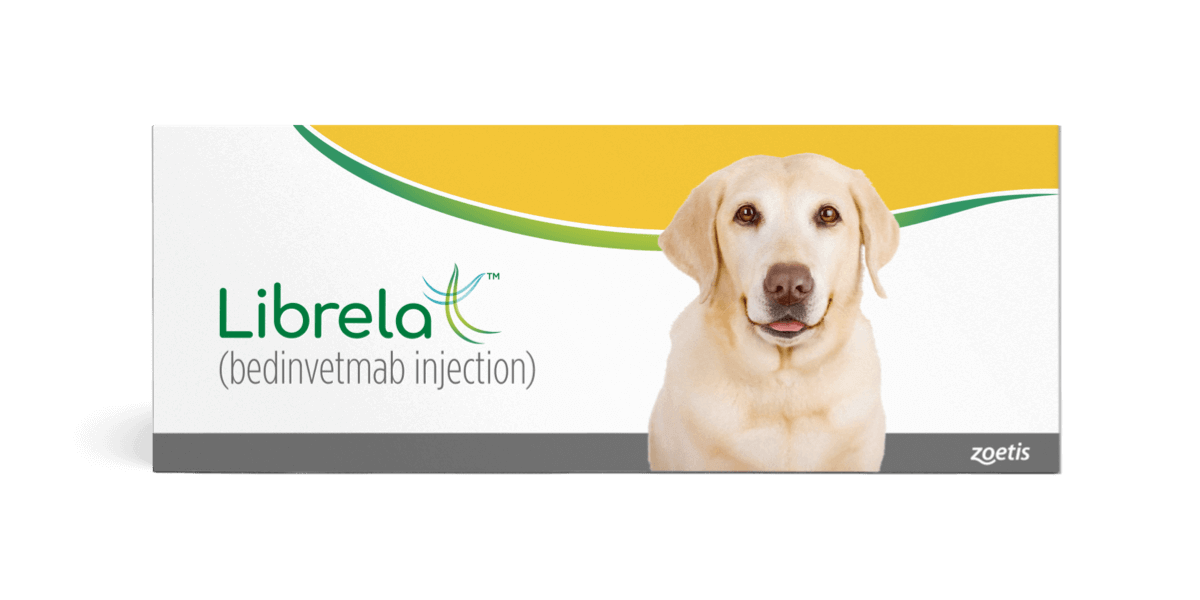
Control Dog OA Pain With Monthly, Long-Lasting Librela



Librela offers long-lasting pain relief with a once-a-month injection administered by your vet professional.1
Osteoarthritis (OA), or arthritis, is a painful, chronic condition of the joints. Pain from OA can severely affect the health and well-being of your dog.2 Although we can’t cure OA, we can control the pain it causes, which can help your dog be more active and improve their overall quality of life.3-6
Ask your vet about the newest osteoarthritis injection for dogs.

By reducing OA pain and helping to restore mobility, your dog can feel better and you can get back to the activities you both love.1,3-6


OA is a chronic and painful condition that causes your dog to hurt all the time if left untreated.2

IMPORTANT SAFETY INFORMATION: See full Prescribing Information. For use in dogs only. Women who are pregnant, trying to conceive or breastfeeding should take extreme care to avoid self-injection. Hypersensitivity reactions, including anaphylaxis, could potentially occur with self-injection. Librela should not be used in breeding, pregnant or lactating dogs. Librela should not be administered to dogs with known hypersensitivity to bedinvetmab. The most common adverse events reported in a clinical study were urinary tract infections, bacterial skin infections and dermatitis.
INDICATIONS: For the control of pain associated with osteoarthritis in dogs.
See the Client Information Sheet for more information about Librela.